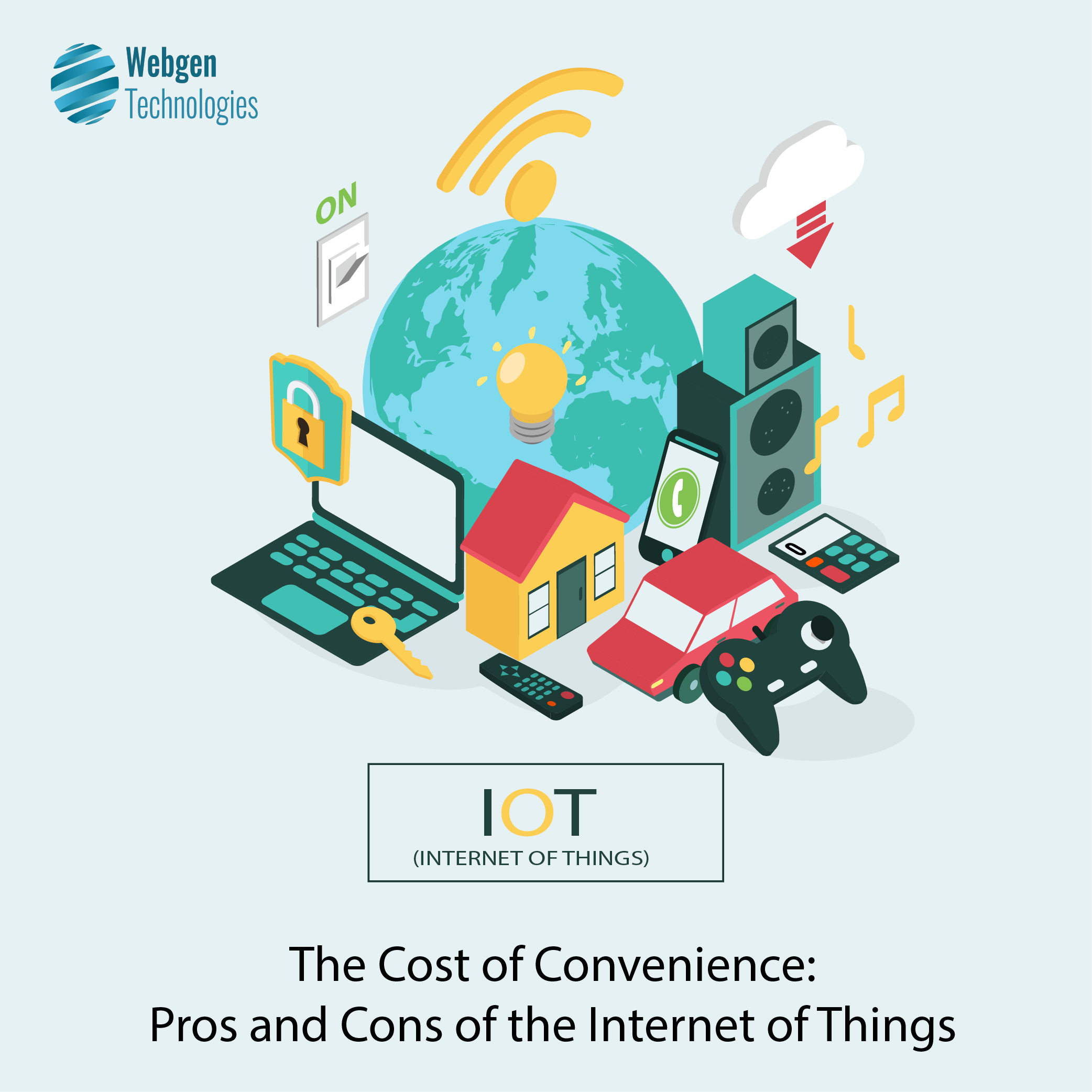An intuitive refrigerator that automatically generates your grocery list, a smart car that picks you up from your home to office and drops you back, or app-based household equipment that enables you to do your chores at a click, all these are possible with the Internet of Things.
However, believing the IoT technology to be all bliss would be a sheer mistake considering that everything has its advantages and disadvantages attached to it. That is why the in-house IoT solutions development experts at Webgen Technology have decided to devote this entire article to underline the comprehensive and carefully curated list of pros and cons of the technology as below.
Pros of the Internet of Things:
Communication: IoT boosts Machine-to-Machine (M2M) communication, enabling physical device connectivity. That further encourages total transparency, making it increasingly efficient and reliable.
Time and cost-efficient: Machine-to-machine interaction enabled by IoT facilitates the optimum utilization of energy and resources, boosting both time and cost efficiency at the same time.
Monitoring: Remotely monitoring various devices within a household or a commercial premise from a central platform is convenient with IoT. Besides, by excluding human intervention, machine-to-machine communication facilitates transparency in the processes while further boosting uniformity in the tasks.
Convenience: With automation, IoT can take care of menial tasks and everyday chores with greater efficiency and accuracy. Besides, IoT can further facilitate personal productivity with features such as mobile payments (saving time and effort) and time-management apps, and more. Similarly, enterprises can conveniently control inventories, streamline operations, cut costs, increase customer satisfaction, and more with the right IoT devices and configuration.
Safety: Remote home monitoring to ensure home security with IoT-enabled concrete sensors that monitor possible threats and alert users of a potential mishap through a single platform such as a mobile app.
Health: From a smart bed for monitoring sleep to wearable fitness trackers for monitoring heart rate, IoT-enabled devices can benefit the users by tracking the users’ health trends. Besides, in the healthcare sector, IoT devices are capable of saving lives by monitoring a wide range of health information of the patients.
Cons of the Internet of Things:
Security: The security of an IoT-enabled household remains vulnerable at the hand of a cybercriminal as each device offers a possible entry point to the premise. That would require the user to establish additional protection into software applications and network connections.
Invasion of privacy: IoT technology uses data to perform its functions efficiently. However, that same user data can be breached by cybercriminals when these devices lack sufficient cybersecurity protection.
Hence are the most notable cost of convenience offered by IoT technology is carefully analyzed by the in-house IoT solutions development experts upon considering both the pros and cons of the same.
Do you need professional assistance to help you develop a fully customized IoT solution for your firm? Contact Webgen Technologies today!
Views: 1529





